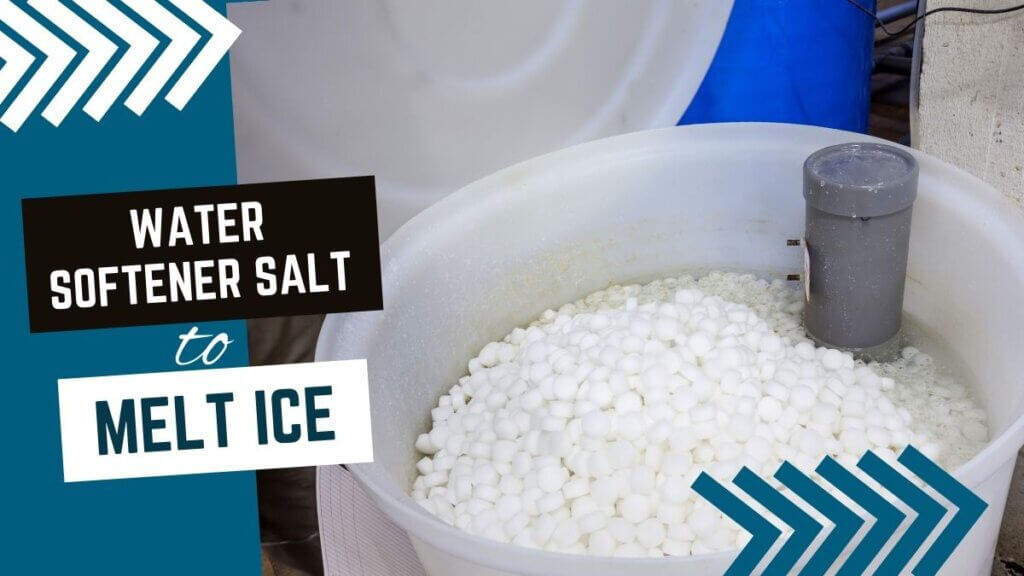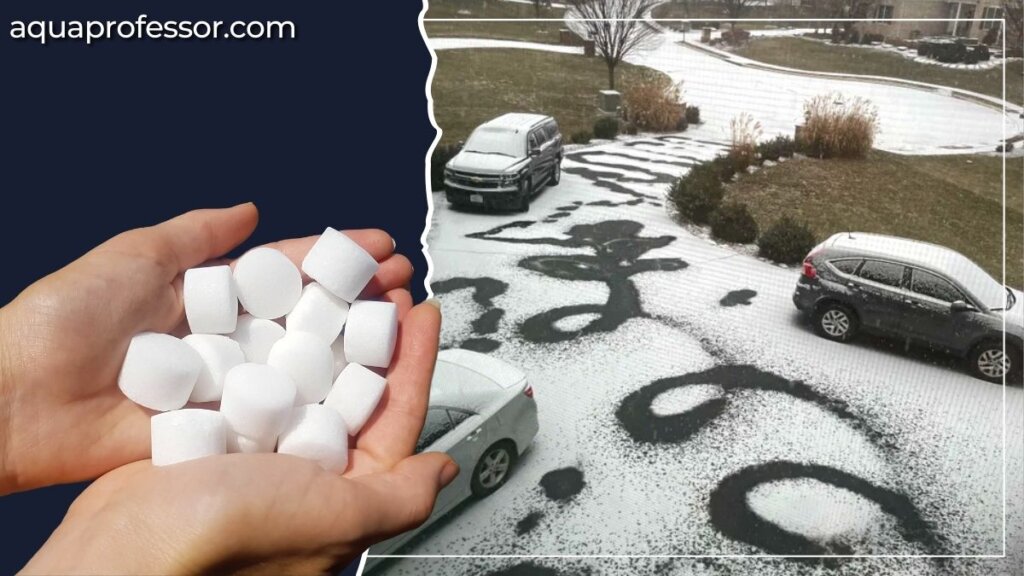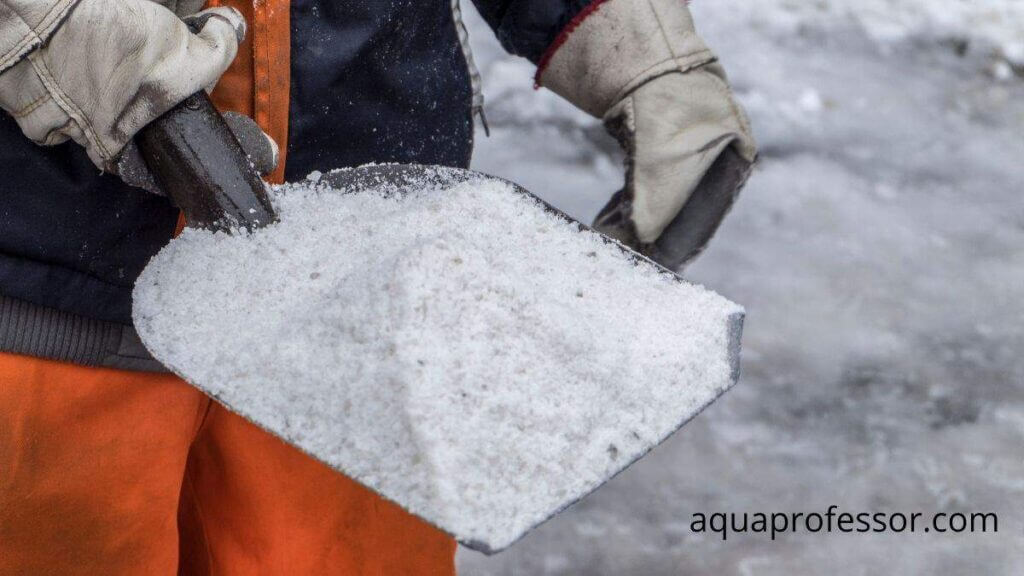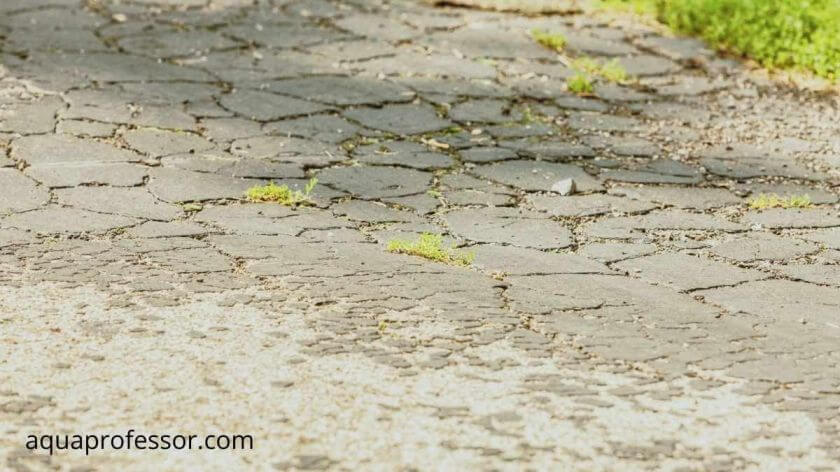
Winters are here, so if you are looking to melt ice on your driveaway and are running out of rock salt, you might be tempted to use softener salt to get the work done. After all, it’s also salt, right?
So, can you use water softener salt to melt ice?
We can confirm that salt from a water softener will work to melt ice. Moreover, it’s widely available and less expensive than its other two main components: sodium and potassium chloride.
Keep reading to know all about how!
Can I Use Water Softener Salt on My Driveway?

Yes, water softener salt can melt ice on icy driveways, but you must be cautious. Using a water softener salt to melt ice can have advantages and disadvantages.
Advantages
Disadvantages
Also Read: Why Softener Water Tastes Salty
Can You Use Water Softener Salt for Rock Salt and Ice Melt to Melt Ice?

The answer is “yes,” but the most efficient ice-melting product will vary depending on factors like temperature and the type of surface you’re trying to de-ice.
All three types of salt can be used for melting ice, but they work in slightly different ways and have distinct properties and melting power that make them more or less suitable for different situations.
Here is a summary of the key differences between the three types of salt:
1️⃣Softener Salt
Also Read: Softener Salt Pellets vs Crystals
2️⃣Rock Salt
3️⃣Ice Melt
Also Read: Can You Use Pool Salt In A Water Softener?
What Can You Use to Melt Ice Besides Salt?

Sugar beet juice:
Although not effective as salt, sugar beet juice can melt ice. It is biodegradable and non-toxic, but it can be challenging to find and may be more expensive than other options.Alcohol:
Alcohol, such as rubbing alcohol or ethanol, can melt ice because it has a lower freezing point than water. However, it is generally less effective than salt in melting ice and may not work well at extremely low temperatures. Furthermore, it is highly flammable, so you should handle it carefully.
Vinegar:Vinegar is a natural ice melter used to help break up and melt ice. Mix vinegar and water in a spray bottle and apply it to the ice. The acidity of the vinegar will help to melt the ice, and the water will help rinse any remaining debris.Sand or kitty litter:
Sand and kitty litter can provide traction on icy surfaces, but they do not melt the ice. They can help prevent slips and falls but will not make the ice disappear.Calcium chloride:
Calcium chloride is a type of salt that is very effective at melting ice, even at low temperatures. It is often used in commercial ice melt products because of its effectiveness and melting process. However, it can be more expensive than other types of salt and may be corrosive to some metal surfaces.Asphalt:
Asphalt can melt ice because it has a high heat capacity, which means it can absorb and release a lot of heat as it changes temperature.
Also Read: Is Water Softener Loop Worth It?
Can You Use Water Softener Salt To Melt Ice: FAQs
Is water softener salt safe for concrete?
You can use a softener salt on concrete without risk, but proper application is essential.
Is water softener salt safe for pets?
Water softener salt can be toxic to pets, such as dogs who are attracted to salt flavor and may consume high quantities, which can be hazardous to their health.
What is the cheapest way to melt ice?
Using water-softener salt to melt ice is often viewed as a cost-effective method, as salt is relatively affordable and widely available. The function of water softener salt is to reduce the freezing point of water, which aids in ice melting.
Can I use water softener salt on my roof?
Using water softener salt on a roof may cause harm (salt damage) to the roofing material and any plants or grass that come into touch with the salt. In addition, salt is abrasive and can cause roofing materials to deteriorate over time.
Can you use dishwasher salt to melt ice?
Yes, you can use dishwasher salt to melt ice. Dishwasher salt, also known as solar salt, is a type of salt used in some dishwashers to soften hard water. It can also be used in other applications where a high-purity salt is needed, such as in water softeners and de-icing.
Sayan understands that access to clean water doesn’t have to be costly.
He strives to provide knowledge of water purification techniques in the simplest way possible so that we can lead a healthy life without breaking our bank.
